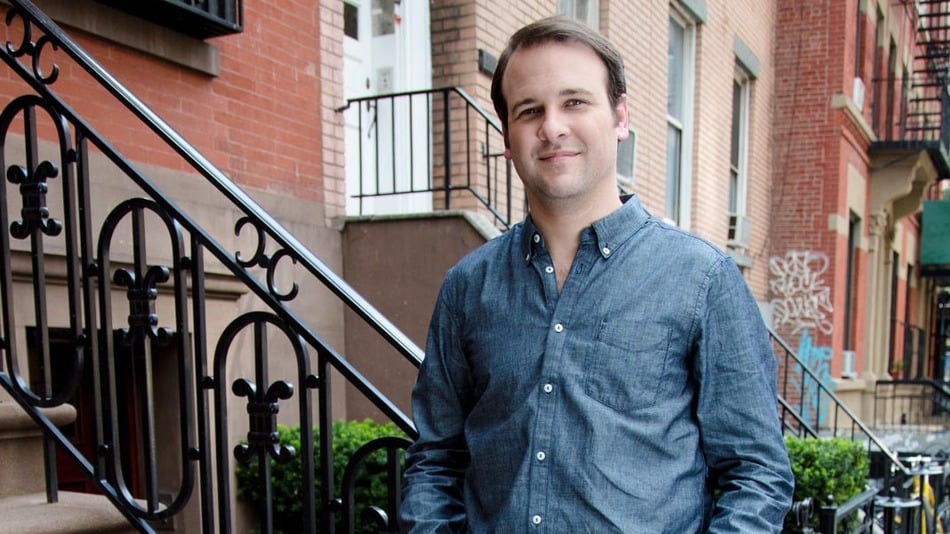At CES 2012 in Las Vegas, amid a mass force-feeding of smart TVs, Freddie Laker had an epiphany: This smart TV thing is going to happen. Laker says the penetration of smart TVs reminds him of smartphones back in 2007 — and he’s excited about it. Future tech has always been exciting to Laker, and he saw an opportunity to get ahead of the smart TV trend. By this point in his life, he’s used to being ahead of the pack.
“I fell in love with tech from an early age,” says Laker, a self-described “futurist” who boasts about being one of the first people in south Florida to have 56-gig Internet access.
The Brit-born entrepreneur — and son of airline maven Freddie Laker — dropped out of college at 18 and took up DJing, having fallen in love with house music during a trip to Spain.
“I was a terrible DJ, but I was still a decent talker back in the day, and I managed to talk my way onto an afternoon slot on a pirate radio station, The Womb,” he recalls. The station got shut down by the FCC in the mid 1990s, but Laker outsmarted the Feds.
“RealPlayer had just come out, and cable modems had just hit South Beach for the first time, so I came up with this idea where you put one antenna on one end of South Beach hooked up to an antenna on a friend’s roof,” he says. “Then we put another antenna at the other end of South Beach and hooked it up to a computer on another roof, so we broadcasted it on the Internet. We started using a very simple program to move the signal between the antennas at random intervals.”
It took five months for the Feds to figure out what was happening, at which point they shut down The Womb … again. Word of the scheme got out, and Rolling Stone came calling, wanting to interview the guys behind one of the world’s first 24-hour radio stations in the world — an accolade that was news to Laker and his comrades.
“We didn’t have any idea we were one of the first 24-hour radio stations!” exclaims Laker.
Laker credits his entire career to that Rolling Stone article and his DJ gigs. “Every company stems back to The Womb because after that article, I’d done one thing. Even though I was only 19 years old, I had done one more thing on the Internet than anyone else had done in 1996. I had experience. So my phone started ringing a lot.”
Turning “Futurism” Into a Career
After the Rolling Stone fame, Laker thereafter launched the Internet service provider Laker.Net, which he ran for seven years before selling it. Then he founded the digital agency iChameleon Group, which was acquired in 2008 by SapientNitro; Laker was named VP of global marketing strategy of the parent company.
And when he saw those smart TVs at CES last year, he started thinking about applying services like Flipboard and Pulse to smart TVs. But on a smart TV, he realized, you’d want to watch the content, not read it. “That’s how Gui.de was born, basically,” says Laker, who left SapientNitro to launch this new venture. “I said, ‘OK, how can I take things I like to read and make them into things I like to watch?'”
Gui.de became an iPad app, and a Google TV version of Gui.de was demoed at Google I/O. The startup began getting some buzz — and then, Laker says, it began losing focus. Laker says he let the company take on too many projects, and decided to rewrite the company’s business plan overnight, recasting Gui.de as a “pure play B2B company” this summer.

“We started realizing that publishers are desperately trying to create video content, but it’s time consuming and not cost-effective,” says Laker. Publishers are also suffering from declining display advertising prices, and they’re looking for ways to serve more expensive and effective video advertising.
The original vision for Gui.de allowed brands to dynamically create video featuring avatars — from the Mona Lisa to anime characters — reading the content and showing the images from online news articles. These videos are sharable, and likely to perform well on the social web, where videos are more engaging than links.
“Now that the product has been in the market for about three months, we’ve realized that there are so many more things consumers and publishers want in a great video experience,” says Laker. The next iteration of Guide is using natural language processing to pull dozens of cues from articles to display more photos, embedded videos and dynamically generated infographics.”
Miami, Sans Vice
What’s unique about Gui.de — aside from the product itself — is that Laker founded it in Miami, which isn’t exactly a famed tech hub, though a burgeoning one in recent years. TheKnight Foundation has helped to drive innovation, and Laker describes that team as “the de facto cool investor down there right now.”
The Miami tech scene “desperately needs some heroes,” because it’s lacking legitimacy on a national scale, despite the success of Open English, a language-training startup that’s raised $120 million to date. But Open English’s success has been low-profile, so Laker is hoping for some breakthrough startups — ideally his own.
While Miami has a more laid-back, beach-focused culture than New York and Silicon Valley, Laker insists that those in the tech scene are comparable to denizens of other tech meccas. “Nerds are still nerds — they are playing World of Warcraft, they aren’t distracted by the beach.”
This means Miami’s talent pool is Laker’s for the taking, and he’s capitalizing on it to create what just might be the future of online video.
“I’ve done a lot of stuff that’s ahead of the curve, but I didn’t do it because I wasn’t trying to be ahead of the curve — I was just doing it because it was really interesting,” he says. “Then I luck out and they end up being really good businesses. I’m hoping that I’m going to get lucky again on this one. We’ll see.”
This article was originally published on Mashable: “How a ‘Rolling Stone’ Article Propelled One Entrepreneur’s Career‘





